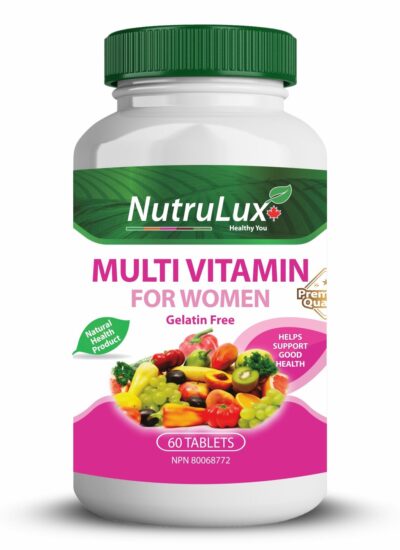
Sugar Control ( 200 mg Gymnema ) Halal Gelatin Free Capsules
$19.99
High blood sugar give rise to many disease including diabetes that causes many problems in smooth functioning of the body. It is better to take control on sugar intake. Sugar control supplements can be beneficial with other precautions.
Recommended dose: Adult: 1 Capsule(s) 2 time(s) per day. Take 2 hours before or after taking other medications.
Recommended use: Provides support for healthy glucose metabolism.

Buy 1 & Get 1 Free
Description
What is Sugar as a disease (diabetes)?
Diabetes mellitus, commonly known as diabetes, is a metabolic disease that causes high blood sugar. The hormone insulin moves sugar from the blood into your cells to be stored or used for energy. With diabetes, your body either doesn’t make enough insulin or can’t effectively use the insulin it does make. Untreated high blood sugar from diabetes can damage your nerves, eyes, kidneys, and other organs. There are a few different types of diabetes:
Type 1 diabetes an autoimmune disease. The immune system attacks and destroys cells in the pancreas, where insulin is made. It’s unclear what causes this attack. About 10 percent of people with diabetes have this type.
Type 2 diabetes occurs when your body becomes resistant to insulin, and sugar builds up in your blood. Prediabetes occurs when your blood sugar is higher than normal, but it’s not high enough for a diagnosis of type 2 diabetes. Gestational diabetes is high blood sugar during pregnancy. Insulin-blocking hormones produced by the placenta cause this type of diabetes. A rare condition called diabetes insipidus is not related to diabetes mellitus, although it has a similar name. It’s a different condition in which your kidneys remove too much fluid from your body. If someone have hyperglycemia, it means that their blood glucose levels are too high. Often a result of diabetes, elevated glucose levels are due to your body not producing enough insulin or not utilizing this hormone properly. Elevated blood sugar levels can have a negative impact on your health, affecting everything from your vision to weight to heart health.1 While changing your diet or incorporating more exercise can help manage high blood sugar, there are also many supplements that may help. Common examples include vitamin D, cinnamon, and magnesium, among others. However, according to the American Diabetes Association, there is no clear evidence of benefit from herbal or non herbal supplementation for people with diabetes who have no underlying deficiencies.2 Keep in mind that these supplements are not meant to replace diabetes medications. What they can do is serve as helpful complements to any blood sugar-lowering medications your healthcare provider has prescribed.
Symptoms of diabetes
Diabetes symptoms are caused by rising blood sugar.
General symptoms
The general symptoms of diabetes include:
- increased hunger
- increased thirst
- weight loss
- frequent urination
- blurry vision
- extreme fatigue
- sores that don’t heal
Symptoms in men
In addition to the general symptoms of diabetes, men with diabetes may have erectile dysfunction (ED), and poor muscle strength.
Symptoms in women
Women with diabetes can also have symptoms such as urinary tract infections, yeast infections, and dry, itchy skin.
Type 1 diabetes
Symptoms of type 1 diabetes can include:
- extreme hunger
- increased thirst
- unintentional weight loss
- frequent urination
- blurry vision
- tiredness
It may also result in mood changes.
Type 2 diabetes
Symptoms of type 2 diabetes can include:
- increased hunger
- increased thirst
- increased urination
- blurry vision
- tiredness
- sores that are slow to heal
Causes of diabetes
Different causes are associated with each type of diabetes.
Type 1 diabetes
Doctors don’t know exactly what causes type 1 diabetes. For some reason, the immune system mistakenly attacks and destroys insulin-producing beta cells in the pancreas. Genes may play a role in some people. It’s also possible that a virus sets off the immune system attack.
Type 2 diabetes
Type 2 diabetes stems from a combination of genetics and lifestyle factors. Being overweight or obese increases your risk too. Carrying extra weight, especially in your belly, makes your cells more resistant to the effects of insulin on your blood sugar. This condition runs in families. Family members share genes that make them more likely to get type 2 diabetes and to be overweight.
Supplements that impact blood sugar/diabetes
Supplements may cause unwelcome—or dangerous—side effects, especially if they interact with your medications. While some ingredients could intensify the effects of your diabetes meds, causing hypoglycemia (low blood sugar, also called blood glucose), others may have the opposite effect, leading to hyperglycemia (high blood sugar).
Chromium
A chromium deficiency may lead to high blood sugar levels. It may be worth a try if you’re deficient in chromium, but that’s very rare. Steer clear if you’ve been diagnosed with kidney disease. Chromium supplements might further damage the kidneys and worsen the disease.
- Vitamin E & St. John’s Wort: Both vitamin E and the herb St. John’s wort can have dangerous interactions with blood-thinning drugs used to treat heart disease—increasing your bleeding risk. Among people with heart disease being treated with the blood thinner warfarin, those most likely to experience bleeding events have higher levels of vitamin E in their bodies. Other studies have found that St. John’s wort amplifies the effect of blood thinners. Avoid these supplements if you’re taking a blood-thinning medication. Besides warfarin, those include apixaban, dabigatran, heparin, and rivaroxaban.
Other common supplements
- A B12 supplement can be helpful if you have type 2 diabetes and are deficient in the vitamin. People who take metformin for type 2 diabetes have lower levels of vitamin B12. If you’re on metformin, talk to your health care provider about periodically being tested for a B12 deficiency.
- Vitamin C and E supplements won’t ward off diabetes and diabetes complications. Until the research shows a clear benefit, it’s best to pass on these.
























